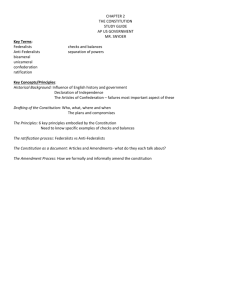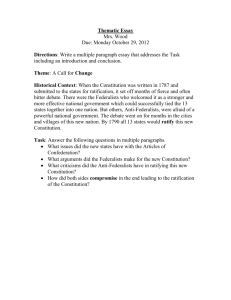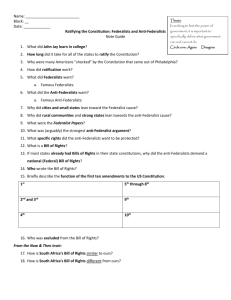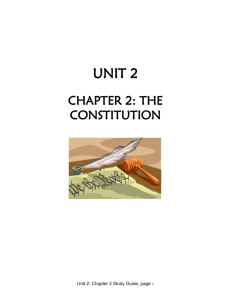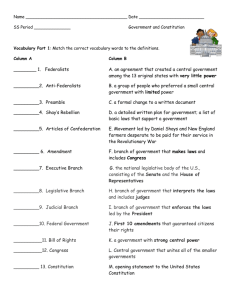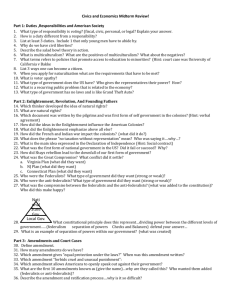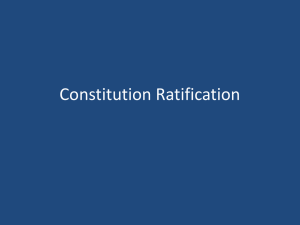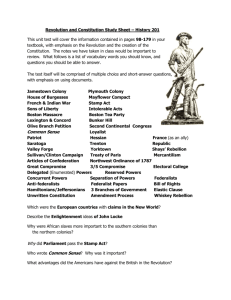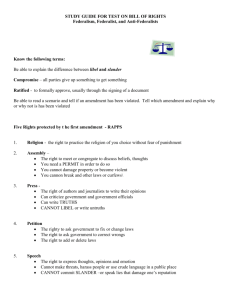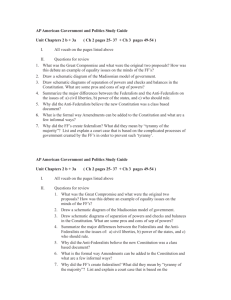APUS Unit 3 Ch.9 Fed-Anti
advertisement
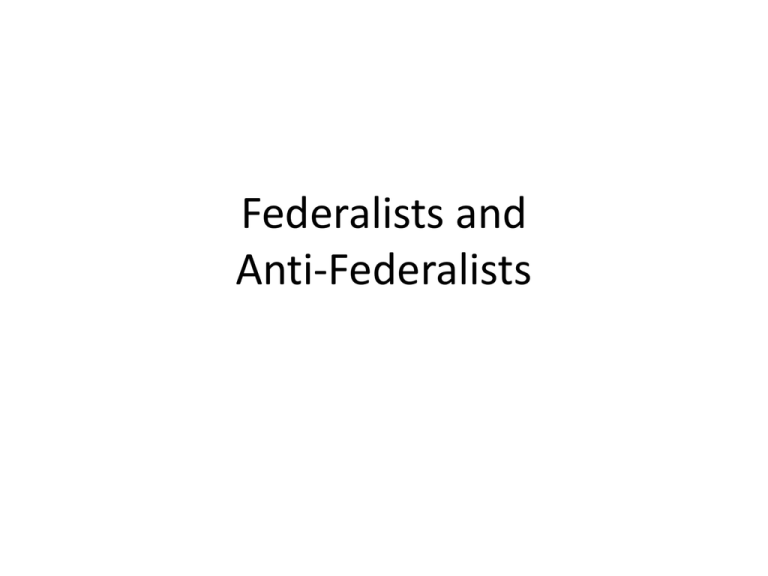
Federalists and Anti-Federalists The Constitution • The Electoral College • In what way was the Electoral College a compromise? -Question Ch.9 Study Guide, II.4 How was slavery addressed in the Constitution? • -in apportioning direct taxes and in according representation in the House of Representatives, slaves would count as threefifths of a person (three-fifths compromise). • the slave trade could not be touched until 1807 (at that time, Congress banned it). Table 9-2 p173 In what ways did the Constitution seek to erect barriers against “mobocracy?” • federal judges were appointed for life • the president was to be indirectly elected by the Electoral College • senators were to be chosen indirectly by state legislatures What democratic elements existed in the Constitution? • it was based on two main principles of republicanism- government was based on the consent of the governed and the powers of government should be limited • the virtue of the people, not the authority of the state, was to be the ultimate guarantor of liberty, justice, and order: “We the people” Who were the Federalists and AntiFederalists? Map 9-4 p174 Federalists • Generally lived along the seaboard • Generally wealthier, more educated, and better organized than the Anti-Federalists. Anti-Federalists • Sam Adams, Patrick Henry, Richard Henry Lee • Generally states’ rights proponents, backcountry people, small farmers • Generally the poorest classes Anti-Federalist Arguments • the Constitution was written by aristocratic elements of society and was undemocratic • sovereignty of the states were being submerged • freedoms of the individual were jeopardized by the lack of a bill of rights • loss of annual elections for congressional representatives, the creation of a federal stronghold (later D.C.), the creation of a standing army, the omission of any reference to God, and the procedure of ratification with only two-thirds of the states. • The promise to add a bill of rights swayed some Anti-Federalists • June 1788 the Constitution was officially adopted Table 9-3 p175 p176 What do the authors mean when they say, “The minority had triumphed- twice”? • -a militant minority of American radicals and engineered the military Revolution. Now a minority of conservatives (embracing some of the earlier radicals) had engineered a peaceful revolution that overthrew the Articles of Confederation. What do the authors mean by “Conservatism was victorious?” • Can the Constitution be considered both a radical departure from the Articles of Confederation and a conservative document at the same time?
